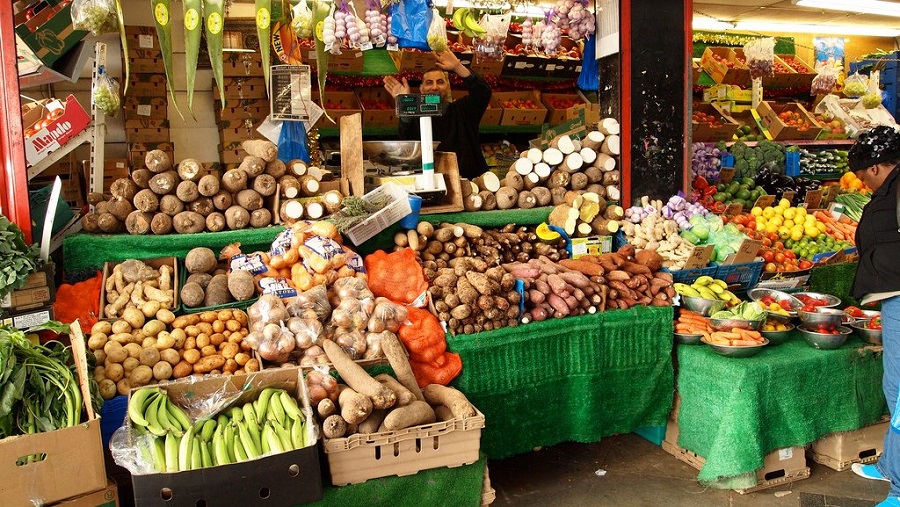Thousands of farming communities in Benue and Kogi states have been affected by flooding, according to news reports. Smallholder farmers in coastal areas like Benue and Kogi, have to deal with floods ravaging their farmlands, thereby posing a risk to crop production. The floods have also led to soil displacement, destroying food crops.
The situation has led to rising food prices as crop yield drops significantly.
According to the International Climate Change Development Initiative (ICCDI) Africa, flood washes away the topsoil, which is the richest part of the soil and contains organic matter and other crop nutrients and deposits elsewhere. This eventually leads to a reduction in the soil’s fertility and its sustainable use.
Benue State
Dr. Emmanuel Shior, executive secretary at the Benue State Emergency Management Agency has announced that 23 people have died from a boat mishap in Guma local government area (LGA) and 116,084 people have been displaced in the state, as 4,411 houses have been submerged.
12,856 households in local government areas of Benue state have been affected by flooding and 14,040 hectares of farmlands have been affected by flooding as well. Farmers are not only displaced but are now without any source of livelihood, as all their crops are submerged in water.
Overall, schools, markets, companies, houses, and farmlands in 104 communities have been impacted by flooding so far.
According to Dr. Shior, the affected local governments are Guma, Vandeikya, Otukpo, Katsina-ala, Makurdi, Apa, Agatu, Tarka, Gboko, Gwer-West, and Logo. While Makurdi and Gatu are the worst hit LGAs. In Makurdi, 34 communities are impacted, while in Agatu, 28 communities are impacted by the flooding.
“The victims in Agatu who are currently taking refuge along the federal highway will soon be relocated to Obagaji,” Dr. Shior said.
Kogi state
The Ganaja-Ajaokuta road has reportedly been submerged by the River Niger due to flooding in Kogi State, Nigeria’s North Central Zone. Several other councils in the state have reportedly been ravaged by flooding and several commuters and traders have resorted to using canoe rides to assess their individual routes in the state.
According to the Guardian, many passengers were stranded, while those who could not stay longer due to the flood had to take a canoe to cross over to the other part of the road to take commercial motorcycles to the motor park to continue their journeys.
Thousands of houses have been submerged in the flood, leaving tens of thousands homeless, with nowhere to go.
A total of 113 communities in 10 LGAs have been impacted by the flood. The affected LGAs are Lokoja, Kogi, Ajaokuta, Bassa, Ibaji, Idah Igalamela/Odolu, Ofu, Omola, and Adavi. There are a lot of farming communities in these LGAs and the flooding also poses a food security risk to Nigerians.
An ongoing nightmare
The Nigeria Hydrological Services Agency (NIHSA) says there is more agony to come, not just in Kogi and Benue, but also in other riverine areas like Niger, Lagos, Ogun, Ekiti, Jigawa, Taraba, Bauchi, Kano, Kaduna, Plateau, Adamawa, Anambra, Ebonyi, Edo, Delta, and Yobe State.
Nairametrics had earlier reported that as of September 21, over 600,000 Nigerians have been affected this year, with 300 dead across various states, 500 injured and 500,000 impacted due to homelessness and flood-related illnesses.
Just last week, the National Emergency Management Agency (NEMA) announced that operators of the Cameroon-based Lagdo Dam have commenced the release of excess water from the reservoir. The water from the dam will cascade into Nigeria through River Benue, affecting communities in Benue, Kogi, Nasarawa, Kebbi, Niger, Taraba, and Adamawa.
It is also expected that Kainji and Jebba dams have started spilling excess water from their dams, with Shiroro dam, expected to shed excess water by October. This will further intensify flooding in affected communities.
What is being done about this?
Kogi residents have called for help from the government. In response to flooding in Kogi, Benue, and Jigawa, NEMA has sent mobile water treatment plants to the states. 140,000 liters have been distributed to victims in Benue state.
According to NEMA, the deployment of the water treatment plants was a result of the current floods in the states, resulting in saturation of the soil and overflow of septic tanks and pit latrines resulting in the pollution of the sources of portable drinking water. The water purifying machine has a capacity of purifying 2,000 liters of water with 99.99% purity in an hour.
What you should know
- In October 2020, flooding also affected communities in Lokoja, Kogi/Kotonkarfe, Ajaokuta, Bassa, Ibaji, Idah, Igalamela, Ofu, Adavi, and Omala.
- In 2012, the flooding in Kogi led to the destruction of 600,000 homes and 363 deaths, with over 7 million people negatively impacted by the flood.
- In 2019, over 700 people were impacted by flooding in Udaburu-Ugbugbu in Ehaje, Ogwurute, Obenjira, Ejaa, Ugwu-Ogaji, and Ola’Och Idu in Itabono communities of Owukpa, as well as Wadata, Wurukum, Idye, Akpehe and Gboko road.
